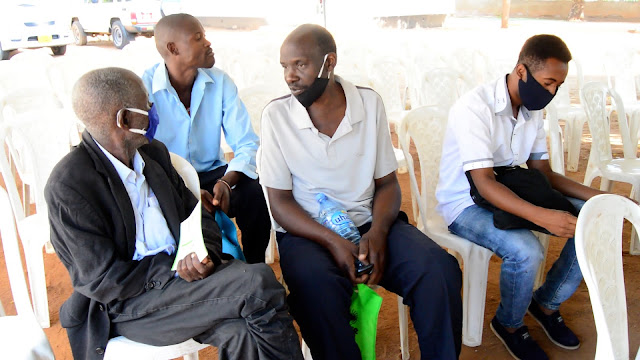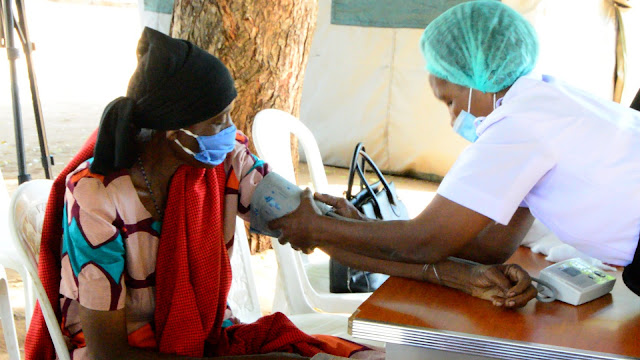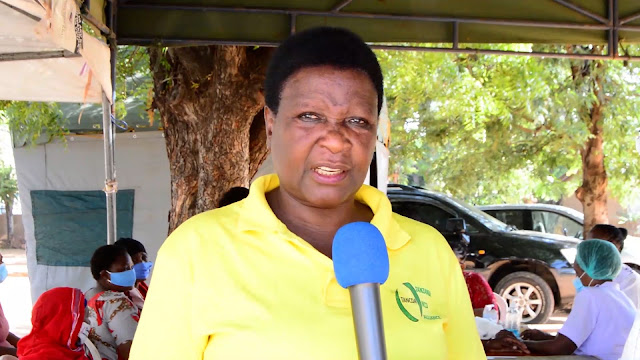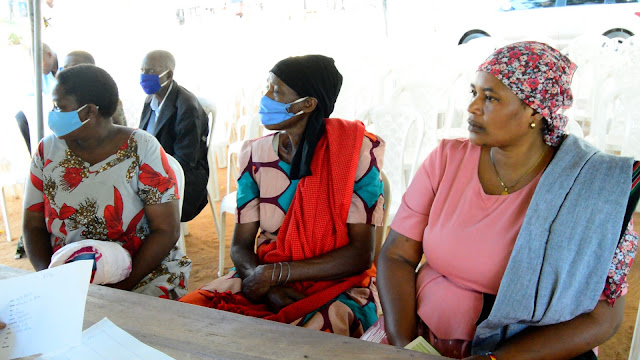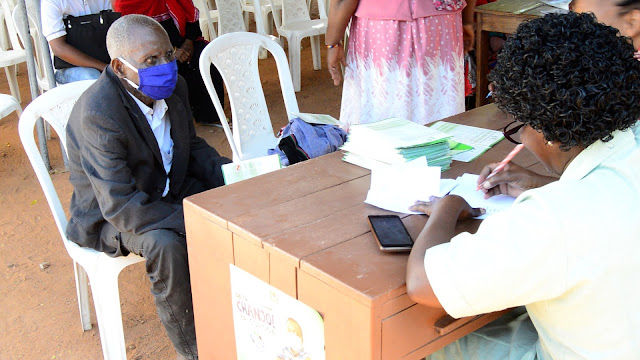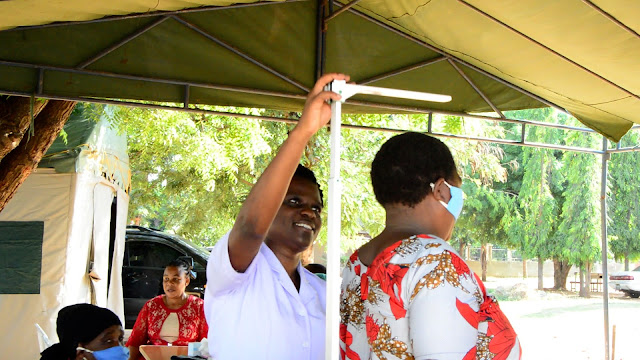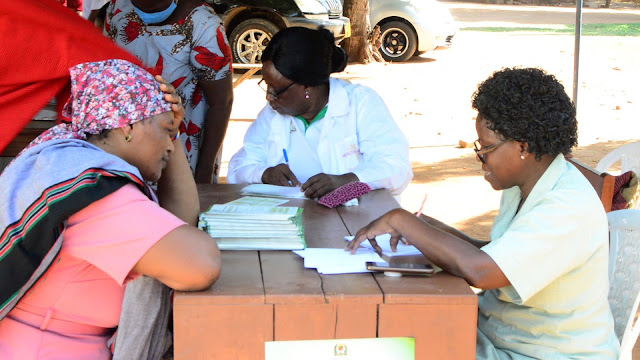 Citizens of Shinyanga Municipality testing for Non-Communicable Diseases including Hypertension and Diabetes.
Citizens of Shinyanga Municipality testing for Non-Communicable Diseases including Hypertension and Diabetes.
Some residents of Shinyanga Municipality recieving testings and counseling for Non Communicable deseases :Photo by Michael Solomon- Shinyanga Press Club Blog.
Residents of Shinyanga Municipality and Shinyanga Region have turned out to receive Non-communicable Diseases treatment services, which were provided at the Shinyanga Region Referral Hospital for two days.
Nutrition
Services Coordinator of Shinyanga Regional Referral Hospital who is also the
Regional Infectious Diseases Coordinator, and Chairperson of the Lake Region
Non-Communicable Diseases Association Ms. Lucy Kanoni said that the
community of the region and the lake zone do not have regular health check-ups,
so they find themselves in the worst stages of the disease including Diabetes,
High Blood Pressure and Heart attack .
Lucy
said that they have decided to provide education to the society so that they understand the diseases and
enable them to take precautions as well as to do tests for various people to
identify disease indicators and take more precautions.
" Our role is to ensure that we provide adequate public education on these non-communicable diseases so that citizens can take steps to protect themselves against deseases " said Lucy Kanoni.
Lucy said the aim of the Shinyanga Region Referral Hospital and the Region is to see that no citizen
gets infected because getting into it is not easy to get out of, so the
community has to change their living behavior.
" These diseases are very dangerous, for example, high blood pressure, cardiovascular disease, diabetes and some cancers, asthma, kidney and kidney disease (Sic cell)", Said Lucy
Lucy said that Shinyanga region has continued to have a
significant increase in patients with non-communicable diseases where in one
week about 10 hypertension and heart disease are diagnosed.
"Our clinics only run on Tuesdays for one week, but we have a lot of patients so we have about 60 to 80 patients who come to the clinic per week and in terms of diabetes we get four patients every week, this is due to these diseases not having any obvious symptoms that the patient can see and understand quickly "said Lucy.
Lucy explained that, the lifestyle that people live now is what
contributes to many people being diagnosed with these diseases where he
mentioned some of the factors that contribute to heart disease including
irregular eating habits, lack of exercise, tobacco use and heavy alcohol use.
For her part, A Nurse at Shinyaga Regional Referral Hospital who is one of the service providers who were providing treatments services to various citizens, Ms. Christina Jacob Kulima said that the exercise went well and more than 110 residents have been reached with the service for the two days they were providing, services and testing as well as Counseling.
However
Christina said that according to a study conducted by the Health Ministry in
2012 found that out of 100 people aged 25 and over 9 people have diabetes, 26
people have high blood pressure and 25 people have high levels of fat in the
blood, 34 being overweight.
Selemani
Omary, a resident of Ibinzamata ward , thanked Shinyanga Regional Referral
Hospital for providing free services for non-communicable diagnostic services to the public
and urged young people and other groups to develop regular testing habits to
determine their health status.
Omary
added that a large Tanzanian community does not have a culture of regular
health check-ups, a condition that contributes to the onset of these diseases
which do not show any early symptoms.
Ms Nemetua Peter, a resident of Ngokolo ward , thanked the Shinyanga Regional Referral Hospital for providing free services to the people as many could not afford the cost of test and treatment.

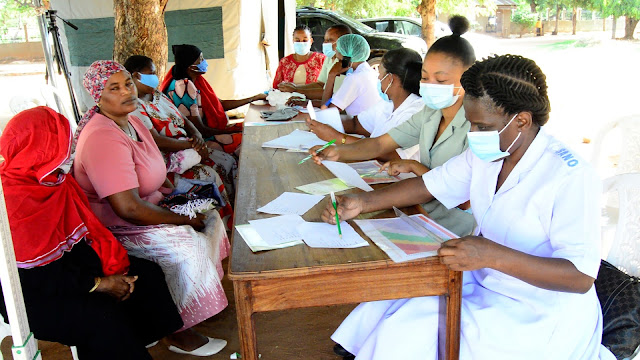 Service delivery exercise in progress
Service delivery exercise in progress